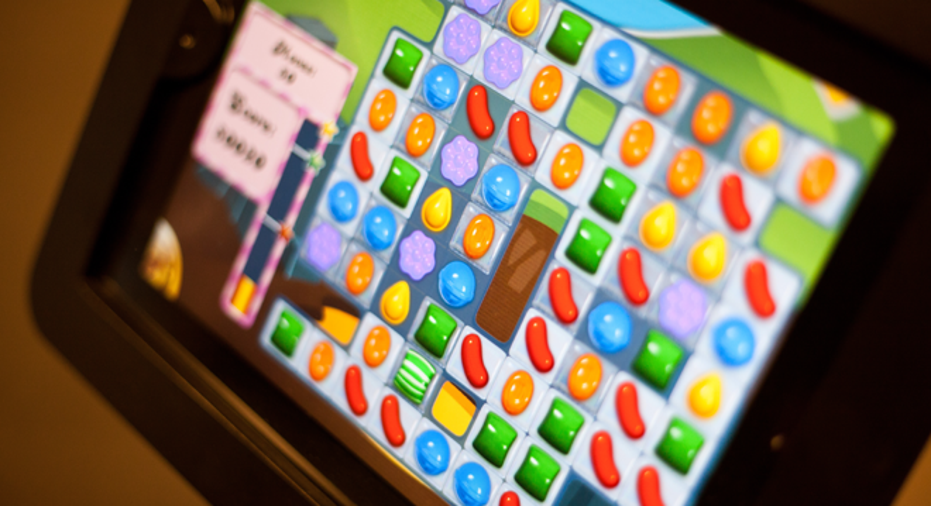Candy Crush Game Maker's IPO To Face Investor Scrutiny

King Digital Entertainment Plc's <IPO-KING.N> colorful "Candy Crush Saga" has gone viral on smartphones worldwide, but the company may struggle to replicate that enthusiasm with its upcoming initial public offering valuing the gaming company at $7.6 billion.
The flotation this week will be closely watched in the fast-growing $17 billion mobile gaming industry, which is keen to emerge from the shadow of Zynga Inc, which has lost half its value since its 2011 IPO valued it at $8.9 billion.
That may be a struggle for London-based King. While the company has drawn plaudits for catching the mobile gaming wave with the most downloaded free app and becoming the top revenue producer of 2013 on Apple Inc's app store, it relies on its marquee game for three-quarters of its revenue.
"The red flag for this IPO is that King's revenues and fortunes are built on one game," Michael Yoshikami, chief executive of Destination Wealth Management, said. "I would be inclined not to invest in stock like this."
When upstarts like King and Zynga go public with valuations approaching those of more established players in the tech space, "it's all about when (the tech bubble) is going to pop," he said.
Even if King, which was founded in Sweden a decade ago, pulls off a strong debut, the real test will be the stock's staying power in coming weeks and months.
King's debut on the Big Board on Wednesday will be closely watched by rivals like Kabam and Kixeye -- known for strategy games like "Kingdoms of Camelot" and "War Commander" -- which are expected to seek market listings or new financing.
Investors warn of the dangers of an industry where games like "Draw Something", from Zynga's OMGPop studio that was shut down a year ago, can top the charts and then quickly fizzle.
Such worries may have dissuaded others. Rovio, maker of the still-popular Angry Birds franchise, has yet to pursue an offering, for example.
While King's revenue skyrocketed over 1,000 percent in 2013 from the prior year, its fourth-quarter revenue declined 3 percent sequentially to $602 million. King said the decline reflected "a decrease in 'Candy Crush Saga' gross bookings," though gross bookings of other games rose.
"Revenue concentration in one game would still be palatable if in fact the game was growing," Sterne Agee analyst Arvind Bhatia said. "Because it's not, that's a double whammy."
King, which is offering 22.2 million shares at between $21 and $24 per share, will announce final pricing on Tuesday. It will price shares at eight to nine times earnings before interest, taxes, depreciation and amortization, which is slightly below the average of 10 times EBITDA at which Activision and Electronic Arts are trading, according to Bhatia.
The discount "seems fair and an acknowledgment of negative factors," said Bhatia, who has yet to rate King's stock. "Zynga was in denial that its business was declining when it went public. ... Here, the company is giving you information and saying Candy Crush has peaked."
WAITING IN THE WINGS
Regardless of how King's stock performs, the company will become the barometer for a 7-year old, volatile and fragmented industry. The mobile gaming space until now has seen mainly smaller players like Glu Mobile list in the United States.
That may change. Kabam, which expects gross revenue to grow from $360 million last year to $550 million to $650 million in 2014, is weighing an IPO. Other potential IPO candidates like Kixeye are also waiting in the wings.
"The King IPO is going to revalidate the gaming space," said Taehoon Kim, chief executive of nWay, a San Francisco-based startup that develops online and mobile games.
King's valuation up to $7.6 billion would take it close to top-tier video gaming giants such as Electronic Arts ($9.4 billion) and Activision Blizzard ($14.9 billion).
There are signs that King's IPO is already galvanizing investor interest. FunPlus, the China-based company behind "Family Farm," announced a $74 million funding round last week, the gaming industry's largest in recent years.
"We're definitely looking for King to prove that gaming companies can build a sustainable business," said Andy Zhong, FunPlus's chief executive.
Korea's SundayToz Corp, which went public last year after its color-matching mobile game "AniPang" went viral, acted to do just that.
"We were looked at as a one-hit wonder, same as King," SundayToz Chief Executive Kevin Lee said. A sequel, "AniPang 2," launched in January and emerged as the top-grossing iOS and Android game in South Korea in just three months.
"People started to then invest in our company and made its market capitalization grow six times."



















